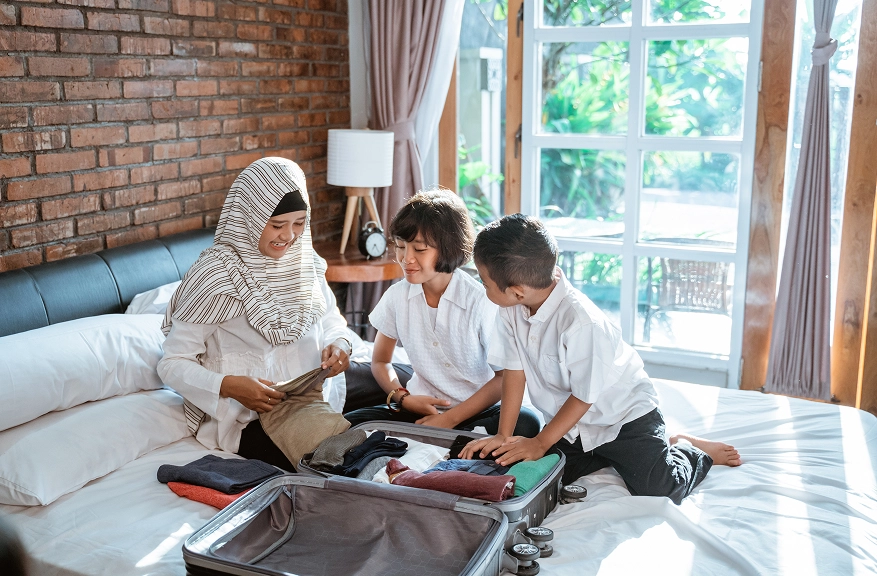Table of Contents
- Introduction: Setting the Stage for a Successful Relationship
- Why Proper Accommodation is a Foundation for Trust
- UAE Legal Standards for Live-in Nanny Accommodation (2025)
- The Room: More Than Just Four Walls
- Safety, Privacy & Essential Amenities
- Your Obligations in the Employment Contract
- Going Above and Beyond: Best Practices for Nanny Accommodation
- Comfort, Furnishing, and Wellbeing
- Respecting Cultural & Personal Needs
- Open & Respectful Communication
- Employer’s Action Checklist for Dubai Families
- Ensuring Compliance & Where to Get Expert Help
- Frequently Asked Questions (2025 Edition)
- Conclusion: Building a Responsible Employment Relationship
Blog|13 Jul 2025
Live-in Nanny Accommodation Requirements: UAE Legal Standards and Best Practices (2025)

Introduction: Setting the Stage for a Successful Relationship
In 2025, nannies remain a crucial part of family life across Dubai and the UAE. Establishing a relationship of trust and respect begins with upholding your legal duties as an employer—especially the accommodations you provide.This guide consolidates the latest UAE requirements and proven best practices, helping you offer your nanny a space where she feels respected, safe, and truly at home.
Why Proper Accommodation is a Foundation for Trust
Providing a safe, private, and comfortable environment for your nanny is not just a legal obligation—it creates the conditions for loyalty, job satisfaction, and continuity in your home. Subpar accommodation remains a leading cause of disputes and early contract terminations in the UAE. Conversely, meeting and exceeding standards can strengthen household stability and overall wellbeing for your family and staff.

UAE Legal Standards for Live-in Nanny Accommodation (2025)
The Room: More Than Just Four Walls
Legal Requirements in 2025:
- Private living space: The nanny must have her own lockable, separate room—not a partitioned area or a multipurpose space.
- Minimum housing standards: The room must have sufficient space, natural light, and proper ventilation (windows are recommended).
- Complete essential furnishings: Each room must include a real bed (not a sofa/roll-away), clean mattress, bedding, wardrobe or chest of drawers.
- Climate control is mandatory: Functional and regularly serviced air conditioning—no exceptions, due to the UAE climate.
Safety, Privacy & Essential Amenities
Safety:
- The room must be free from hazards—no faulty wiring, leaks, mold, or unsafe fixtures.
- A working smoke detector must be installed.
- The nanny must have regular access to a clean, functional bathroom. A private bathroom is best; if it’s shared, it should always be hygienic and available.
Privacy:
- The room is your nanny’s private space. It is illegal to enter without her permission and strictly prohibited to install any surveillance devices (audio or video).
Your Obligations in the Employment Contract
Contract Compliance:
- The contract, registered with the Ministry of Human Resources and Emiratisation (MoHRE), must explicitly state accommodation arrangements, meals/allowance, duties, weekly rest day, and medical insurance.
- Salary Payment: Wages must be paid via the Wages Protection System (WPS); cash payments are no longer permitted.
- Visa Sponsorship: Employer eligibility requires a minimum monthly income (AED 25,000+) and a minimum 2-bedroom dwelling.
- Mandatory Statutory Benefits: Health insurance, minimum annual paid leave (30 days), one paid weekly rest day, and end-of-service gratuity are all required by law.
Going Above and Beyond: Best Practices for Nanny Accommodation
Comfort, Furnishing, and Wellbeing
- Regularly maintain the AC and ensure all electricals work.
- Add comfort items: bedside table, reading lamp, mirror, desk/chair, and blackout curtains, especially if the nanny works non-standard hours.
- Provide reliable Wi-Fi for personal use—highly valued for keeping in touch with family and promoting emotional wellbeing.
Respecting Cultural & Personal Needs
- Recognize and reasonably accommodate cultural and religious practices (prayer time, dietary needs).
- Support fair access to the kitchen or provide basic cooking facilities as appropriate.
Open & Respectful Communication
- Conduct regular, informal check-ins about comfort and needs.
- Explain room features and house rules clearly on arrival (e.g., visitor policies, emergencies) in a respectful and open manner.
Employer’s Action Checklist for Dubai Families
- Pre-hiring: Inspect and photograph the nanny’s room for readiness, safety, and compliance.
- Review contract clauses with the Tadbeer center—ensure details about accommodation, rest days, meals, salary payment (WPS), and insurance are present.
- Add personal touches (fresh bedding, toiletries) before her arrival.
- Provide clear orientation on room usage, privacy, and household facilities.
- Schedule regular maintenance checks—especially for AC and safety devices.
Ensuring Compliance & Where to Get Expert Help
Tadbeer centers, such as Imdad Tadbeer, remain government-approved in 2025 for all domestic staff recruitment. They facilitate:
- Background checks, documentation, and visa formalities
- Employment contract preparation (per MoHRE standards)
- Ongoing guidance on compliance and best practices
- Mediation in case of disputes
Frequently Asked Questions (2025 Edition)
Can my nanny share a room with my children or other staff?
No. UAE law requires a private, lockable room for your nanny.
Does the law require me to provide food or can I offer a meal allowance?
Both are legal. The contract must clearly state which option applies. Meals (or allowance) are mandatory.
Can I install a security camera in my nanny’s room?
Absolutely not. Surveillance in private spaces is strictly illegal.
Do I have to pay my nanny in cash?
No. Since 2023, wages must be paid using the WPS salary protection system.
Are there any eligibility criteria for hiring a live-in nanny?
Yes. As of 2025:
- You must be a UAE citizen or resident earning at least AED 25,000/month;
- Your tenancy or property contract must show at least two bedrooms.
What are the key legal entitlements for nannies in 2025?
- Private room and AC
- Weekly paid day off
- 30 days annual paid leave
- Health insurance
- End-of-service gratuity
Conclusion: Building a Responsible Employment Relationship
Welcoming a live-in nanny into your home is both a privilege and a responsibility. By meeting the UAE’s updated legal standards and embracing best practices, you create a respectful, positive environment for your household and the person you entrust with your family’s care.
If you need further assistance or want to ensure full compliance, contact an approved Tadbeer center such as Imdad Tadbeer—they will guide you through every requirement for a smooth, lawful, and successful hiring process.







